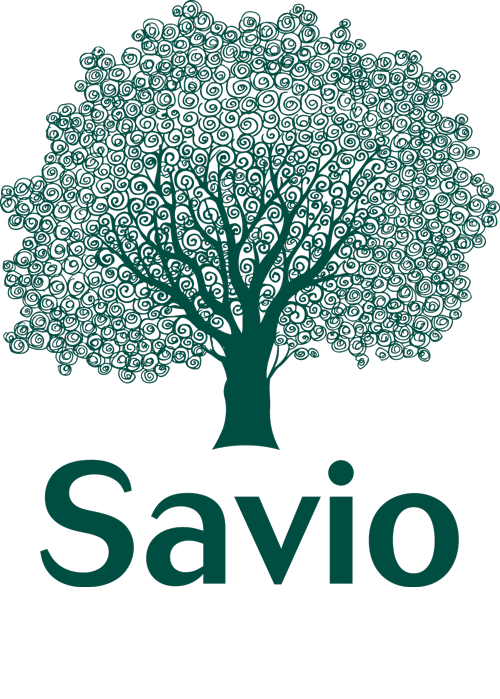Culturally Competent Foster Care
How Can We Close Cultural Gaps?
The effort to tackle racial disparities in the child welfare system sometimes seems impossible. In a world where Black families are twice as likely to be separated from one another, it is Savio’s top priority that every child in our foster program feels seen and celebrated in their identity. What can organizations like ours and community members like you do to ensure children entering foster care receive culturally responsive support? We spoke with two incredible foster homes partnered with our organization to learn more about actionable steps somebody can take to eliminate this problem.
Kimberly’s Story
Foster parent Kimberly decided to join this cause after working as a social worker for years and seeing how foster families struggled to keep up with providing culturally competent care. She said that the final straw for her was watching families destroy Black youths’ natural hair, not out of malice, but because they did not know how to care for it and were not encouraged to seek out the resources to learn.
She noted how uncomfortable conversations about racial differences can be for foster parents, which inevitably led to youth feeling that it was on them to acclimate to a new way of living. No child should ever take on such a burden. These people have the best intentions but don’t have the knowledge base that will allow their foster children to feel supported. Kimberly shared her thoughts on what potential fosters could reflect upon:
“Families need to acknowledge their own privilege and become more comfortable with communities of color on their own, even before beginning the journey to foster. These are strong communities you can learn from yourselves. Why not reach out and learn?”
For Kimberly’s first foster placement, she had two young girls of mixed racial backgrounds come to stay in her home. The girls’ mother was of Asian descent but had spent most of her life working hard to assimilate to Western expectations. Their father encouraged his daughters to disconnect from their roots.
She wanted to emphasize some of the positive and memorable aspects of their family’s heritage. The girls wanted to learn more and more, not just about their family’s culture. They were excited to learn about other Asian cultures and have Kimberly teach them about her African heritage. They bonded over going to diverse community events and meeting new people.
By exploring their mother’s culture and family system of origin, they gained more empathy for what she had experienced in her lifetime due to racial discrimination. And they began to unlearn some of the negative biases that their father had taught them.
Although the girls have returned home, they continue to spend time with Kimberly attending community events and broadening their worldview as they grow up.
Mae’s Story
Foster parent Mae noted that as a Black woman, she feels it is easier to connect with the Black youth placed in her home. However, with all children staying in her home, she works to maintain a connection with the culture they have known their whole lives. She tries to cook the same foods, attend the same church, and have regular conversations about what has been meaningful to their family. Mae chooses to honor the significant moments her foster children carry close to their hearts:
“These children have a history; it is my job to make sure that is not taken away from them. This can look like reminding them of their culture, their community, or their mother. They still love their families, and I work to ensure they can still love their culture the same way.”
To Mae, understanding the history of challenges minority populations have endured can be a lesson for youth in foster care. Knowing that these communities have persevered through great difficulties shows children that they, too, can persist and survive the challenges that led to them being placed in foster care.
Mae says her greatest joy is seeing foster youth become great parents and community members and continue passing their heritage on to their children. By encouraging the youth in her home to connect with their own culture, she feels like she is playing at least a little a part of passing on the joy in diversity to the next generation.
Building Bridges
Foster Parent Recruiter Kaci Cessna connects businesses and spaces owned or operated by diverse groups of people. Through building relationships with leaders in those communities, she hopes the organization will be able to continue branching out to potential foster parents interested in continuing their journey of calling attention to the importance of multiculturalism. As an organization, Savio works to recruit and train foster parents from various cultures and ensure that foster parents with less informed backgrounds have an understanding of cultural humility.
For example, Cessna noted that if someone is already seeking out spaces that support the queer community, even if they are not LGBTQ+, they are already more likely to be open and willing to have exploratory conversations around identity.
“We don’t want to pretend that we are ever going to be completely culturally competent; it is about recognizing our gaps and being able to commit to practicing lifelong learning to ensure that children are supported to connect with their cultures.” - Kaci Cessna, Savio Foster Parent Recruiter.
If you are interested in learning more about becoming a foster parent with Savio or how you can provide culturally sensitive support, please fill out the interest form below.


